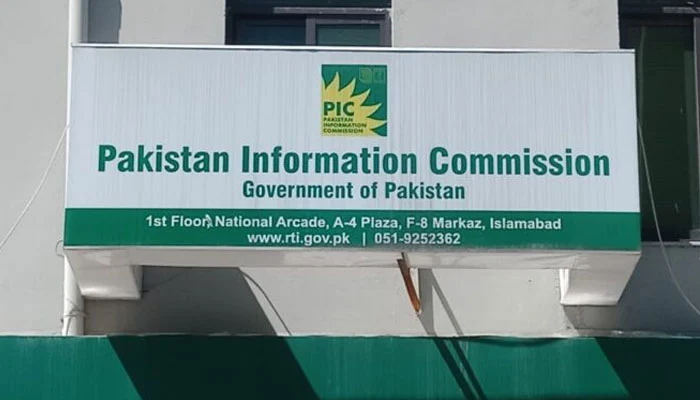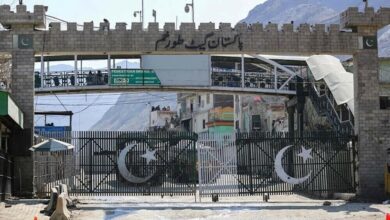ISLAMABAD: The Free and Fair Election Network (Fafen) has urged reforms to address gaps in the implementation of the Punjab Transparency and Right to Information Act (PTRIA) 2013, it was reported on Monday.
Fafen, in its policy brief titled “Strengthening the RTI Framework in Punjab,” has called for close collaboration among the provincial assembly of Punjab, Punjab Information Commission, and civil society to transform the PTRIA’s promise into practice.
The policy brief is part of Fafen’s “Countering Disinformation through Information” campaign.
The law, since its enactment in 2013, established the institutional framework for citizens to exercise their right to information (RTI) as well as to ensure transparency in the provincial public bodies in compliance with Article 19A of the Constitution.
Since the PTRIA’s enactment, RTI implementation in Punjab has progressed steadily with the formation of the Punjab Information Commission (PIC) and the finalisation of Punjab Transparency and Right to Information Rules in 2014.
Earlier this month, Fafen conducted an assessment of proactive disclosures of legally required information by Punjab public bodies.
The assessment covered over 250 Punjab government websites and revealed that public bodies proactively disclosed around 52% of legally mandated information.
This brief synthesises these reviews, assessments, and a thorough analysis of the PTRIA 2013 and its rules to identify gaps in law and practice, benchmarked against national and international standards.
The TRIA 2013 is generally considered a strong law with the provisions matching the globally-recognised RTI standards. The law applies to all public bodies operating in the legislative, executive and judicial domains within the Punjab province and also extends to the local governments in the province.
It mandates proactive disclosures of general information about public bodies including their functions, services, budgets and beneficiaries of government subsidies, rebates and relief programs.
The Act also requires the public bodies to designate Public Information Officers (PIOs) for handling information requests. A unique feature of the Act is granting the right to request information to both natural and legal persons i.e. legally registered organisations, which is absent from other RTI laws in Pakistan.
The process of requesting information is simple and free with a specific response time set as 14 days. Although the law provides a list of exempted information, it also includes a public interest override clause to waive the exemptions if disclosure benefits the public interest.
The Punjab Information Commission constituted under the PTRIA is the appellate forum to adjudicate appeals against denied requests or procedural lapses. The Commission can impose penalties on non-compliant officials that include fines or disciplinary action against officials of public bodies for unjustified delays, rejections, or providing false information.
The PTRIA, despite its progressive provisions, faced implementation challenges forcing judicial interventions for the enforcement of citizen’s right to information. The Fafen believes many of these challenges are rooted in legal ambiguities and institutional weaknesses.
Therefore, it reviewed the PTRIA and Punjab Transparency and Right to Information Rules to identify these gaps in the framework and drafted recommendations for removing these gaps informed by the findings of Fafen’s assessment of transparency in provincial public bodies.











